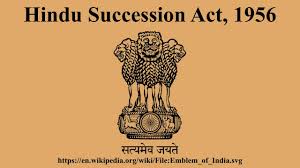Latest News
Amendment in Section 6 of Hindu Succession Act, 1956 : Cauldron of confusion

The amendment of 2005 to Hindu Succession Act is a cauldron of confusions and inconsistencies. There are several reasons or factors such as imperfect language used in the amendment, inconsistent judicial interpretations and also injustice resulting to wife of the coparcenor.
A Background of the Act
Before the enactment of the Hindu Succession Act, 1956, Hindus were covered by shastric and customary law which varied from region to region. Dayabhaga school of law which was pervasive in Bengal and the adjoining areas. Mitakshara school of law was pervasive in the rest of India. Under the Mitakshara School of Hindu Law, woman in a joint Hindu family had merely a right of maintenance/sustenance but had no right of inheritance to property. The basis of Hindu joint family was a common male ancestor and the properties of the family were held as a coparcenary property with male member of the family having a right to the property by virtue of birth and their interest in the coparcenary property would keep varying depending upon the death or a birth of a male in the joint Hindu Family. The property of a male coparcener on his death used to pass by survivorship in the Mitakshara School of Hindu Law. No female was a member of the coparcenary though, she was a member of the joint Hindu family.
The Constitution of India came into force on 26 January 1950. Articles 14, 15(2) & (3) and 16 of the Constitution of India removed discrimination against women and made equal treatment of women as a part of the fundamental rights. To achieve this objective, the Parliament enacted the Hindu Succession Act, 1956. The Principal Act did not provide any rights to the daughters of the partition of the property or any rights to demand partition of the property or even claim a share in the coparcenary property. The only right of the daughter would be to get a share in the father's share in the coparcenary property and the same would arise only on the death of her ancestor -coparcener.
Though the Act says it is enacted to amend and codify the law relating to intestate succession among Hindus and gave rights of testamentary disposition to Hindu males in respect of his properties including his coparcenary share, Section 6 retained substantially the Rule of survivorship. This Section also provided that the right of the male Hindu at the time of his death in the coparcenary property will devolve by survivorship. However, the proviso provided that if the deceased coparcener has any female relatives specified in Class I of the Schedule to the Act, then the property will devolve by succession.
The resultant position was Act 39 of 2005 which came into force on 9 September, 2005 conferring the status of coparcener on the daughter by birth and share in the ancestral property. Married daughter were also included. However, the amendment excluded disposition or alienation including any partition or testamentary disposition of property which had taken place before the 20th day of December, 2004, the date of introduction of the Bill in Rajya Sabha.
Soon after the amendment, the question regarding the prospective or retrospective operation of the amendment came up before few high courts. One set of argument was that in the absence of express provision or implied intention to the contrary, an amendment dealing with a substantive right is prospective and does not affect the vested rights. If a coparcener had died prior to the commencement of the Amendment Act, succession opens on the date of the death as per the prevailing provision of the succession law and the rights of the heirs get crystallised even if partition by metes and bounds does not take place and that the amendment cannot re-open the partition. The counter argument was that the amendment being piece of social legislation to remove discrimination against a women in the light of 174th Report of the Law Commission, the amendment should be read as being retrospective.
The division bench of the Karnataka High Court in the case of Pushpalatha N.V. v. V. Padma, ILR 2010 Kar 1484 took the view that the amendment is retrospective in its operation. The court held that the status of a coparcener is conferred on the daughter on and from the date of the commencement of the Amendment Act and the right is given to her by birth. However the Court said, to be eligible under the amended section, she must have born after 17:6:1956, the day on which the Act came into force. Therefore, the court said by substituted Section 6, the daughter of a coparcener in a Joint Hindu Family governed by Mitakshara Law has been conferred the status of a coparcener by birth and conferred same rights in the coparcener properties as she would have had if she had been a son. Simply put, the Karnataka High Court held that a woman is conferred with coparcener status by birth provided she was born after the Hindu Succession Act 1956 came into force. The Court also held that the woman would get a right in ancestral property "on her own" whether her father is alive in 2005 or not.



































































































